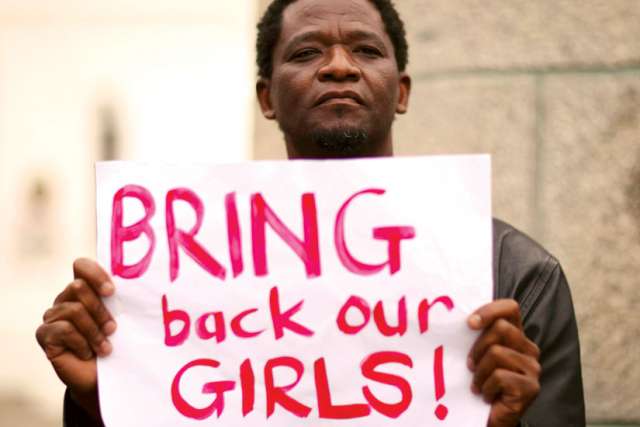In all three stories there’s an anguish, a silent massacre hidden just beneath the surface. What’s it about, the hurling of such aggression at girls and women in our day? It’s not random, but purposeful. Directing violence deliberately against women taps into a kind of negative “faith” that’s felt but not understood. It comes from an understanding of what “God” wants, be it a cultural or religious god, a god of conquest, control or negation.
Christian tradition wrestles with the problem of how it can be that God’s children seek to hurt and destroy each other. St. Irenaeus, in the second century, painstakingly demonstrated how the Old Testament repeatedly portrays evil coming among people, turning them against each other. Much closer to our day, Dorothy Day wrote of the moment she tasted the reality, not only of human suffering, but of how much suffering is inflicted by humans on other humans. “I could only feel darkness and desolation all around me,” she writes. “I would never be free again,” having felt “this wound, this ugly knowledge ... of what (humans) were capable in their treatment of each other.”
The particular violence done to women isn’t only against women. It’s done to human nature — though in a way that can be done only to women. John Paul II wrote that the body makes visible the invisible; the body “transfers into the visible reality of the world, the mystery hidden from eternity in God.” Women make God visible in a way men don’t, and men make God visible in a way women don’t. Only together do man and woman become a visible manifestation of who God is: “a single human nature appearing in two types, man and woman,” says Paul Evdokimov. Man and woman are image of God, not as though they could be isolated from each other, but in communion with each other.
Sin breaks apart this unity of human nature. Created for one another, men and women turn against each other in a violence that often presents itself as good, positive and compassionate. Any crisis that attacks woman or man attacks both, because what’s at stake is their common humanity. Man can’t be human by refusing to indwell in woman, and woman can’t be human if she refuses to indwell in man.
Our joy is found in each other, in being really present to the other. We’re created in the image of God, whose very nature is mutual indwelling. Christian tradition speaks of the dance of mutual love, the “perichoresis,” of the three Divine Persons of the Trinity: each is completely given to the other, and completely receives the other. We humans, in turn, come to life by sharing our lives.
In the Scriptures, it’s particular to woman to bear life, to bear God’s Spirit. Mary is the first in creation who is perfectly able to bear the Spirit. She does so at the Annunciation, when God takes flesh. She does so at Pentecost, when the Church is born.
So much that happens in this world depends on women and their ability to love. Life is born out of pain. Through pain, we learn what love is.
As deep as the pain, so deep is the healing. If evil attacks woman in a particular way as bearer of the Spirit, then Love descends to the “darkness and desolation” of that suffering. I’ve seen it in so many ways. This month I’ll be helping run a Project Rachel retreat. Here women who’ve suffered the pain of having abortions bring that pain before God, the Church and others.
As one woman said to me: “You mean I might be able to let go of this anguish one day? It never occurred to me I wouldn’t have it every day for the rest of my life.” Where they held death, they’re invited to hold life. They don’t escape the pain of sin and suffering. But they discover within it a love more powerful than they could ask or imagine, full of mercy and forgiveness, surprising in its joy, in which no one is lost.
If we’re able to bear the Spirit of God, as His mother did, then we bear life as deeply. We needn’t run away from the depths of our inability to love each other. We can receive a life wrought of the love God bears for us. As a dear friend once told me: “It’s never too late to learn to love a new way.”
(Marrocco can be reached at marrocco7@sympatico.ca.)


